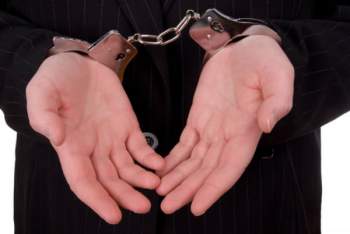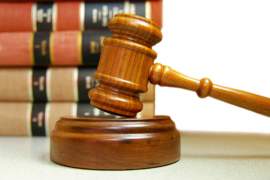
Criminal Law Firms

Must Read
A Short Guide to Criminal Law Firms
What is a criminal law firms?
Criminal law firms are organized teams of defense lawyers, ready to help citizens to clear their names in courts of law. Many have experience working with District Attorneys prosecuting citizens, but they all exclusively work today for their clients’ benefit.
When should you contact a criminal law firm?
There are many different instances in which an individual might require the assistance of a criminal law firm, but in most cases it is to defend themselves from charges in court. Typical crimes that require the assistance of a criminal law firm include:
• Driving Under the Influence (DUI)
• Child Abuse or Spousal Abuse
• Drug Possession
• Possession with the Intent to Distribute
• Public Intoxication
• Identity Fraud
• Theft
• Embezzlement
• Homicide
You need to contact a criminal law firm even before you are accused of a crime, as soon as suspicions begin to form that an accusation may be upcoming. You absolutely need as much time as possible to formulate a criminal defense, as the next steps will proceed not at your own pace but at the pace that the prosecutor and judge sets for your proceedings.
What can my criminal law firm do for me?
Criminal lawyers have had years of training to understand how to best help you have your day in court. These are a few of the methods that a criminal law firm may fairly use in representing your interests:
• A criminal law firm can send a representative to advise you during a police interrogation. Remember that the Fifth Amendment guarantees you the right not to incriminate yourself during such an interrogation, and, if you choose to exercise this right, your lawyer can help to make sure that the police respect it. Also remember that you are under no obligation to speak before your lawyer arrives.
• A criminal law firm can meet with you to discuss all legal strategies available to you, whether that means meeting at their offices, your home, or a prison.
• A criminal law firm can represent your interests in all court proceedings, provided you too are present in the court, and help to make sure that the judge or jury understands your defense arguments.
• A criminal law firm can negotiate with prosecutors and judges to attempt to instigate a plea deal that may lower your eventual sentence.
How will I find and research my criminal law firm?
There are many places to look for excellent criminal law firms. Here are a few:
• Ask for a personal recommendation: Friends, family members, or co-workers may have had to use the services of a criminal law firm in the past, and may have a positive enough of an experience with them to recommend their services to you. Even if the criminal law firm that they recommend is too busy or is otherwise unable to help, they may be able to refer you to someone who can.
• Use a referral service: Referral services run out of local and state bar associations. Trained professionals refer you to a criminal law firm in your area based on your local needs. A small fee is charged that includes the first legal consultation. This has all the benefits of a personalized recommendation, but none of the awkwardness of approaching friends or family about your criminal matter.
• Find a legal directory: Directories simply list criminal law firms, with little indication of their work quality. The most famous directory is the Martindale-Hubbell Law Director, but even the Yellow Pages counts.
Any of these methods, or many more, are suitable ways to find where different criminal law firms are located. The most important part comes after, researching them to find out whether they live up to their claims. Here are a few tasks to cross of your to-do list before signing a contract with a criminal law firm:
• Look for appearances in news articles: Perhaps the criminal law firm you are looking at recently won an expected acquittal for one of their clients, or perhaps the firm was recently investigated by federal police. In either case, you’d want to know to help you make the best decision for you. With criminal law firms, there may even be video available online of their lawyers speaking, either to the press or at a trial.
• Find online reviews: No matter where you find them—message boards, blogs, or online news magazines—you want to hear all the opinions you can about the criminal law firm you are betting your future on.
• Check for a disciplinary history: Disciplinary databases are available either on the website for the state supreme court or the state’s bar association. Some disciplinary actions are perfectly explainable, so broach the topic with the attorney in question before you hire them and see what they say.
How will I pay my criminal law firm?
Most criminal law firms charge clients on a per-hour basis. Unfortunately for clients, other plans such as contingency plans are used only for civil actions. Flat fees are rare in more complex criminal cases, especially in those that go to trial, though you may be able to negotiate for a flat fee in simple traffic violation and cases in which you plan to plead guilty.
Many criminal law firms also charge their clients auxiliary or so-called hidden fees. These can be hourly wages for paralegal or legal researcher services, or one-time fees for the drafting of documents. Some lawyers even charge at an increased rate for trial appearances. Retainers are also common, which are payments at the beginning of services as a gesture of good faith. Be sure to discuss all of these auxiliary fees with your criminal law firm before you sign any contracts.
Note that pro bono attorneys, or those who charge at decreased rates for low-income individuals, are very rare for criminal law clients. That is because ever since the case of Gideon v. Wainwright in 1963, individuals have had attorneys appointed to them at no cost by the state. These lawyers, called public defenders, are sometimes derided as less good than for-pay attorneys, but there is no guarantee that a criminal law firm you find will be better, so only try to locate a firm if you can truly afford one.



















